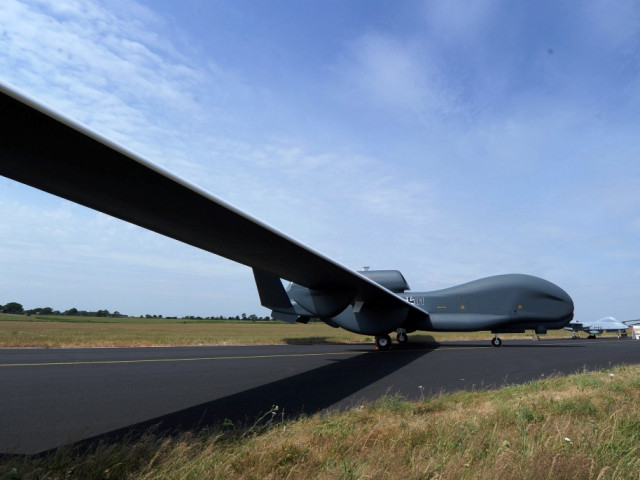Drone attack ambiguities
Will the US soften in front of the new ‘serried ranks’ of policy in Pakistan?

Drone attack ambiguities
If one adds to this his negative view, in the same breath, of the ‘Af-Pak’ formulation appended to President Barack Obama’s policy in the region and his insistence that America mediate the ongoing India-Pakistan row over bilateral dialogue, one has a comprehensive overhaul of the ‘regional’ policy position taken by the PPP when President Asif Ali Zardari first came to the presidency. Mr Gilani’s next objection to the way the ‘peace talks’ were being conducted in Afghanistan brings his government closer than ever to the tough stance adopted by the Pakistan army when it first objected to the Kerry-Lugar Bill.
The drone attacks were a conundrum even with the best commentators joining the unofficial chorus against them. They were flying from Pakistani territory and the US officials kept insisting that Pakistan was aware of the ‘arrangement’ and was allowing it. Some members of the PPP including ministers even said that drone attacks actually helped Pakistan in its policy of fighting the Taliban. What is more, it is now known that Pakistan, far from objecting to America’s violation of the ‘reconnaissance’ arrangement, had at one time asked that the drones also target the Taliban attacking Pakistani civilian targets.
The big change came before the third (current) Pak-US strategic dialogue started in Washington. The first smoke signal came from the embattled ANP government in Khyber-Pakhtunkhwa. The ANP, defiant in the beginning of 2010, was put on the back foot by the end of the year by its lack of defence against the Taliban in Peshawar city and the consequent ‘hits’ it received on its leaders. In February this year it had signed what was called the Peshawar Declaration favouring the drone attacks. This month, the party’s provincial president condemned the US drone saying “innocent tribesmen were being killed in the drone strikes”. The province’s senior minister also condemned the strikes.
Prime Minister Gilani is on record as saying that his leader, Benazir Bhutto, was killed by the Taliban leader Baitullah Mehsud although the case against a number of the Taliban-linked accused in her assassination is clearly going nowhere. Baitullah Mehsud was killed by an American drone flying from Pakistani territory. The prime minister is now clearly embarked on a new policy that hews close to the way the GHQ is thinking these days, its salient point being a disavowal of the policy-path on which General Musharraf had put Pakistan and its army after 9/11. The Taliban are being ‘redefined’ to the three allies who have been damaged much by their terrorism: the ANP, the MQM and the PPP. And all of them, though divided on other issues, are on the same page on this post-Musharraf change of tack.
The PPP is much weakened by corruption scandals, an extremely negative media image, and its confrontation with the Supreme Court. Its early ‘pro-India’ inclination had put it on a collision course with the new army chief who proclaimed honestly that he was ‘India-centric’. After a protracted state of political reversal, the PPP has ostensibly decided to stem the judicial tsunami gathering against it by moving closer to the policy of defiance on Afghanistan adopted by the GHQ. This may or may not work in the end, but currently the PPP is also humbled in its own strategic thinking by the overwhelmingly anti-US feeling in the Pakistani public and the media. The drones were never really explained as something allowed by Pakistan and were used as an instrument of agitprop against America, and the war against terrorism was never really accepted as Pakistan’s own war.
Will the US soften in front of the new ‘serried ranks’ of policy in Pakistan? It may bend a little, but it will pause only because Pakistan’s own post-US withdrawal Taliban policy is not clear at all.
Published in The Express Tribune, October 25th, 2010.












COMMENTS
Comments are moderated and generally will be posted if they are on-topic and not abusive.
For more information, please see our Comments FAQ